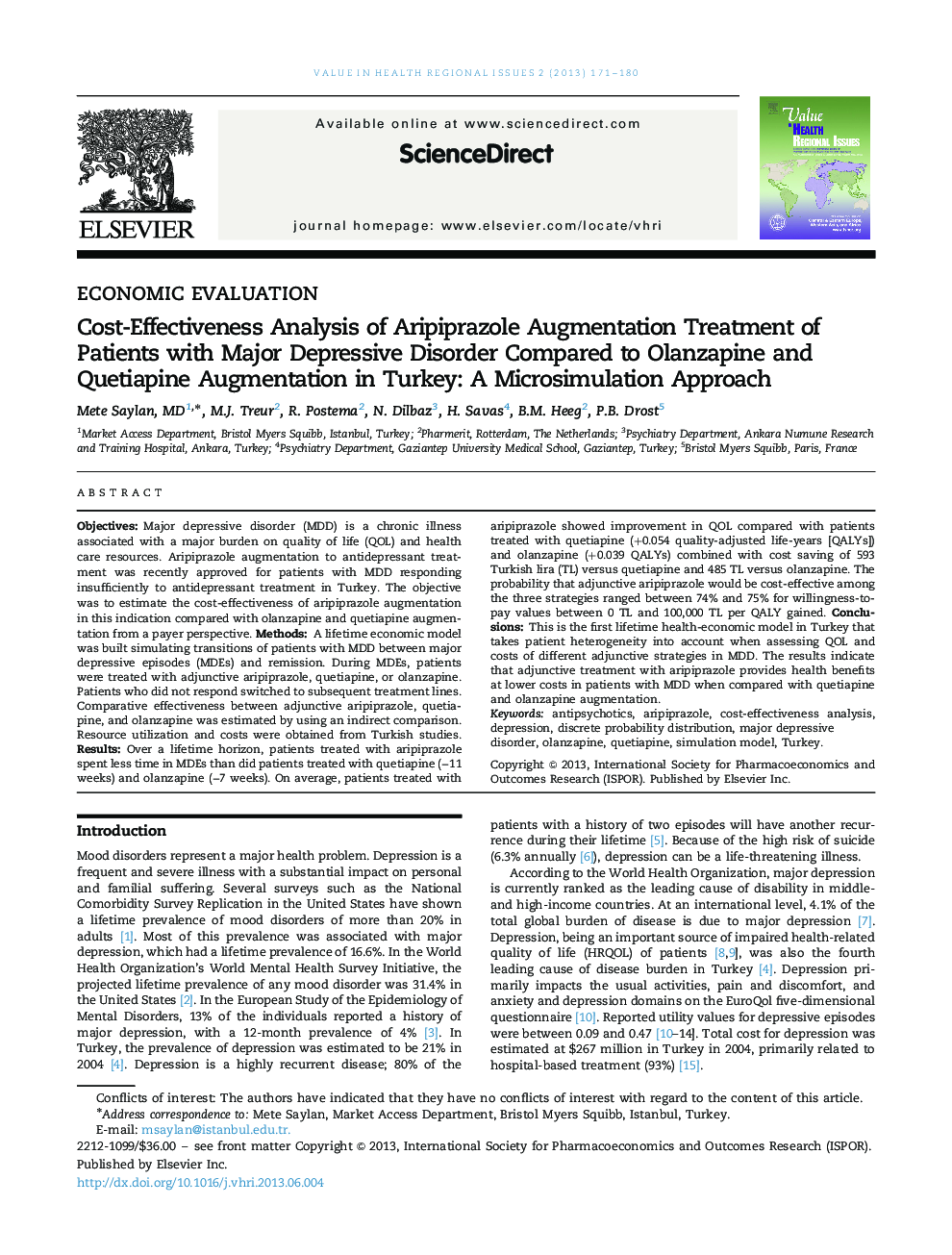| کد مقاله | کد نشریه | سال انتشار | مقاله انگلیسی | نسخه تمام متن |
|---|---|---|---|---|
| 990924 | 935568 | 2013 | 10 صفحه PDF | دانلود رایگان |
ObjectivesMajor depressive disorder (MDD) is a chronic illness associated with a major burden on quality of life (QOL) and health care resources. Aripiprazole augmentation to antidepressant treatment was recently approved for patients with MDD responding insufficiently to antidepressant treatment in Turkey. The objective was to estimate the cost-effectiveness of aripiprazole augmentation in this indication compared with olanzapine and quetiapine augmentation from a payer perspective.MethodsA lifetime economic model was built simulating transitions of patients with MDD between major depressive episodes (MDEs) and remission. During MDEs, patients were treated with adjunctive aripiprazole, quetiapine, or olanzapine. Patients who did not respond switched to subsequent treatment lines. Comparative effectiveness between adjunctive aripiprazole, quetiapine, and olanzapine was estimated by using an indirect comparison. Resource utilization and costs were obtained from Turkish studies.ResultsOver a lifetime horizon, patients treated with aripiprazole spent less time in MDEs than did patients treated with quetiapine (−11 weeks) and olanzapine (−7 weeks). On average, patients treated with aripiprazole showed improvement in QOL compared with patients treated with quetiapine (+0.054 quality-adjusted life-years [QALYs]) and olanzapine (+0.039 QALYs) combined with cost saving of 593 Turkish lira (TL) versus quetiapine and 485 TL versus olanzapine. The probability that adjunctive aripiprazole would be cost-effective among the three strategies ranged between 74% and 75% for willingness-to-pay values between 0 TL and 100,000 TL per QALY gained.ConclusionsThis is the first lifetime health-economic model in Turkey that takes patient heterogeneity into account when assessing QOL and costs of different adjunctive strategies in MDD. The results indicate that adjunctive treatment with aripiprazole provides health benefits at lower costs in patients with MDD when compared with quetiapine and olanzapine augmentation.
Journal: Value in Health Regional Issues - Volume 2, Issue 2, September–October 2013, Pages 171–180
